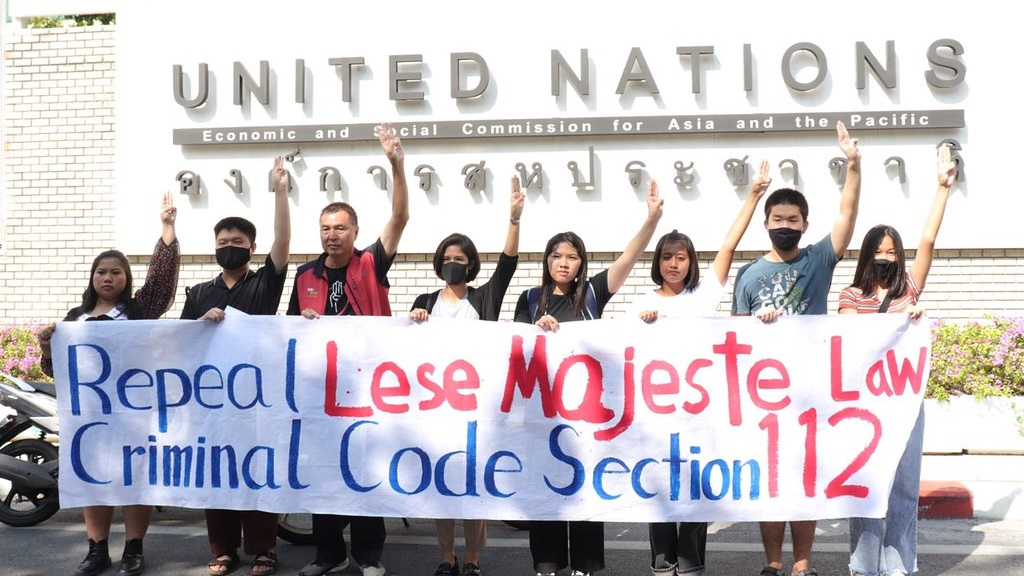A new wave of prosecutions by Thai authorities has led to more activists being charged under the nation’s harsh lèse-majesté law. According to Prachatai, between December 8 and 16, law enforcement authorities have charged 14 people with “insulting” the monarchy. This is on top of the 17 people who were charged for lèse-majesté in a previous wave of crackdown on protesters.
Among those charged under Section 112, which deals with supposed insults to the royal family, includes a 16-year-old boy. The reasons for the charges range from a social media post to participating in a satirical fashion show, all with the supposed intent of “mocking” or “insulting” the monarchy. Section 112 is among the harshest laws prosecuting criticisms of a monarchy, carrying a maximum punishment of 15 years jail time.
Two of those charged, including a 16-year-old whose name is withheld, were seen participating in a parody fashion show in Bangkok, wearing traditional costumes resembling the king and the queen. Among the two is a 23-year-old, Jatuporn Sae-ung, who was seen wearing a pink dress like the queen, with protesters greeting her with chants of “Long Live Her Majesty.” Jatuporn addressed the press on Thursday, December 17, wearing another costume in defiance of the charges pressed against her.
Actress Inthira Charoenpura and a medical professional, Natthathida Meewangpla, have been charged for their participation in the protests outside the royal barracks. Natthathida has previously been charged under Section 112 in 2015, and was also implicated under terrorism charges, after she stood as a witness in a 2010 massacre of six pro-democracy protesters at the Wat Pathum Wanaram temple by military forces.
Anon Nampa, another lèse-majesté accused, and a prominent face of the protests was charged for publishing a letter calling for the resignation of the prime minister Prayut Chan-o-cha and reforms in the monarchy. Anon is also facing seven other charges, over allegations of supposed cyber-crimes.
The authorities are yet to issue any arrest warrants for those charged under section 112. In earlier instances, those arrested under the law were often denied bail and spent months together in prison without a trial. Nevertheless, summons are being issued to the accused, 24 of whom have so far reported to the police stations to hear the charges against them.
For over five months now, protests have been raging across Thailand demanding a return to democracy, a new constitution and extensive reforms to the powers and privileges to the monarchy. Supanut Boonsod, a lawyer working with the Thai Lawyers for Human Rights (TLHR), told Prachatai that charges of lèse-majesté are being used again by the government to stop criticism of itself and the monarchy, with an intent to end the protests. Recently, pro-royalists and pro-military parliamentarians have also taken to instigating their supporters to make use of section 112 against protesters.





